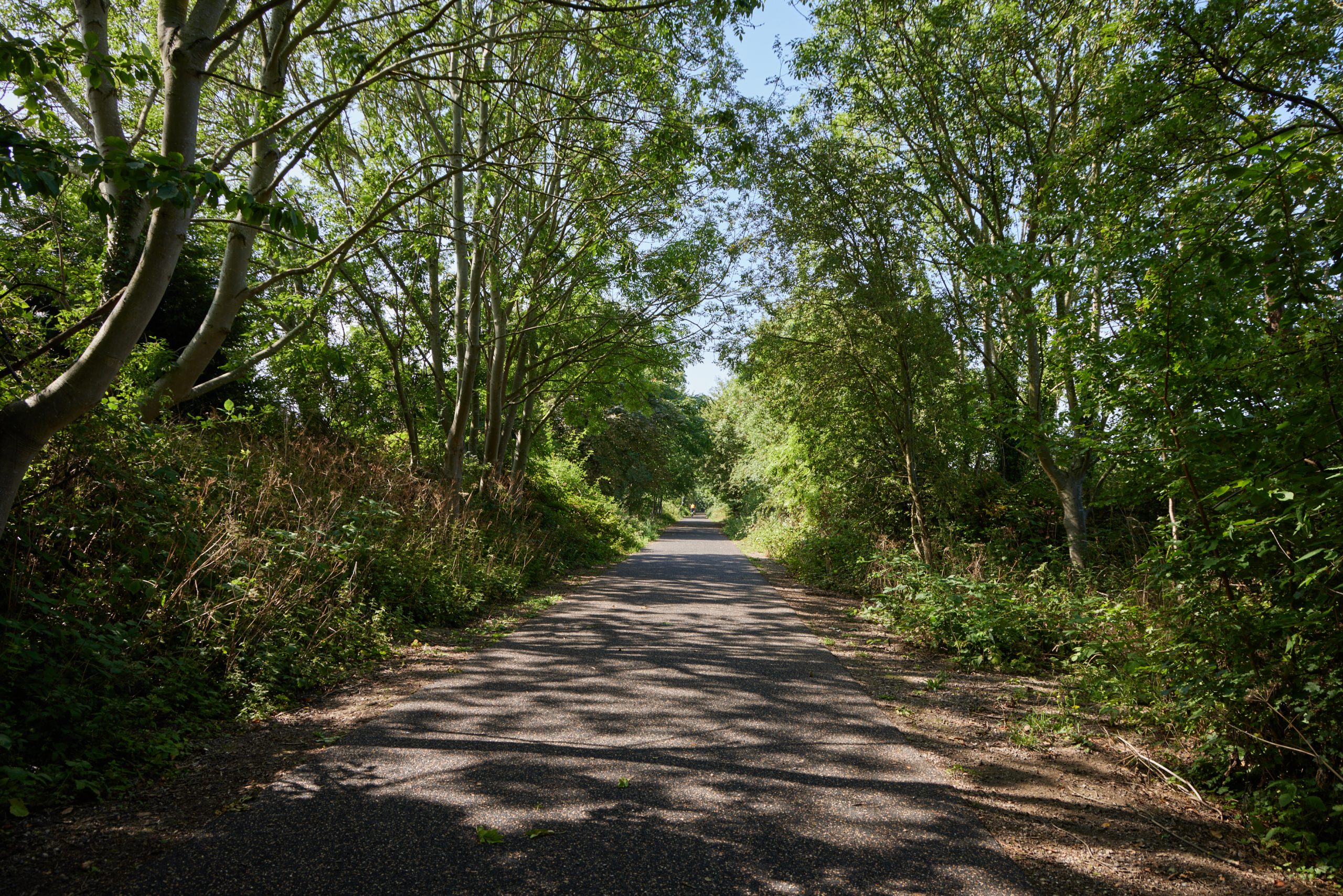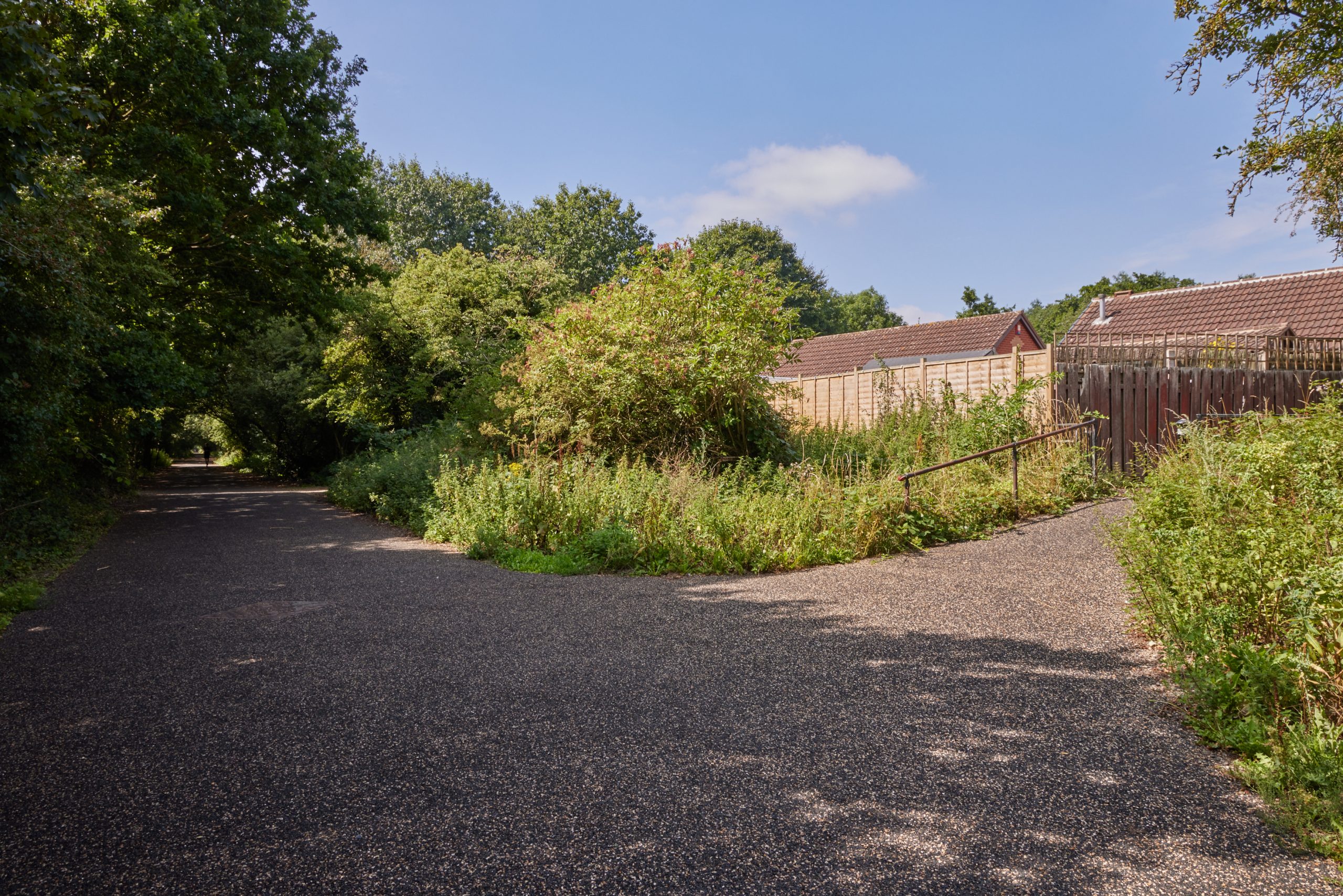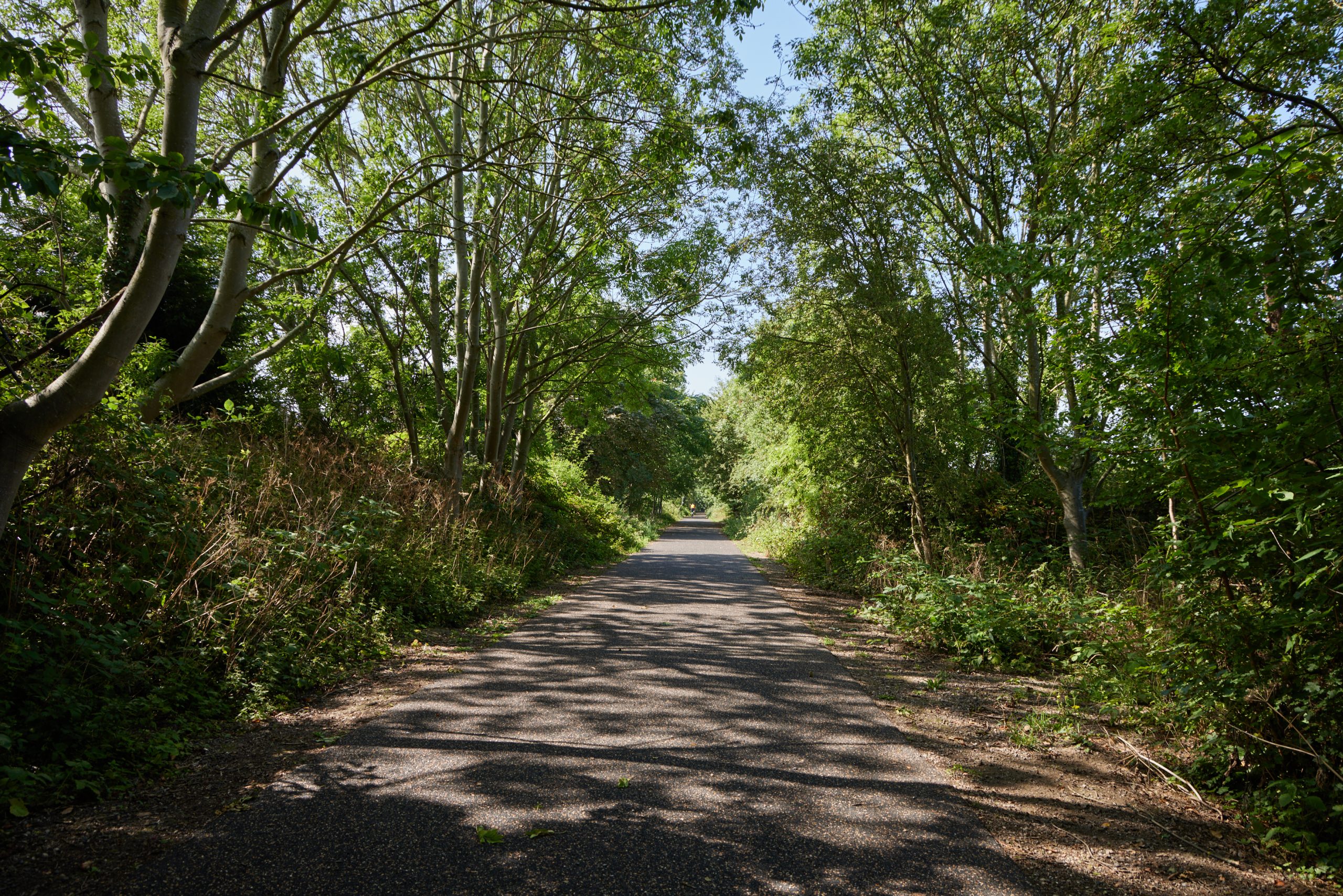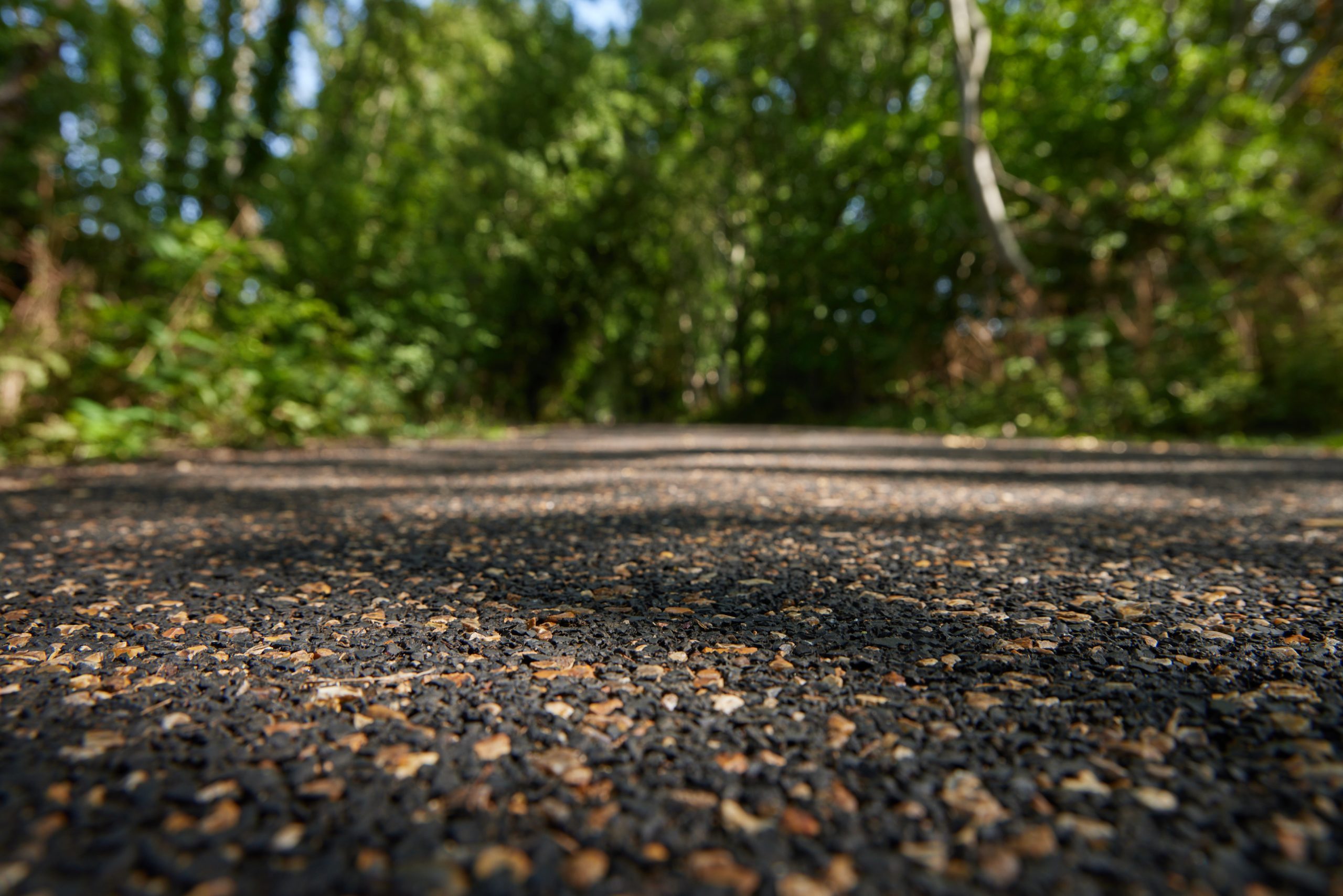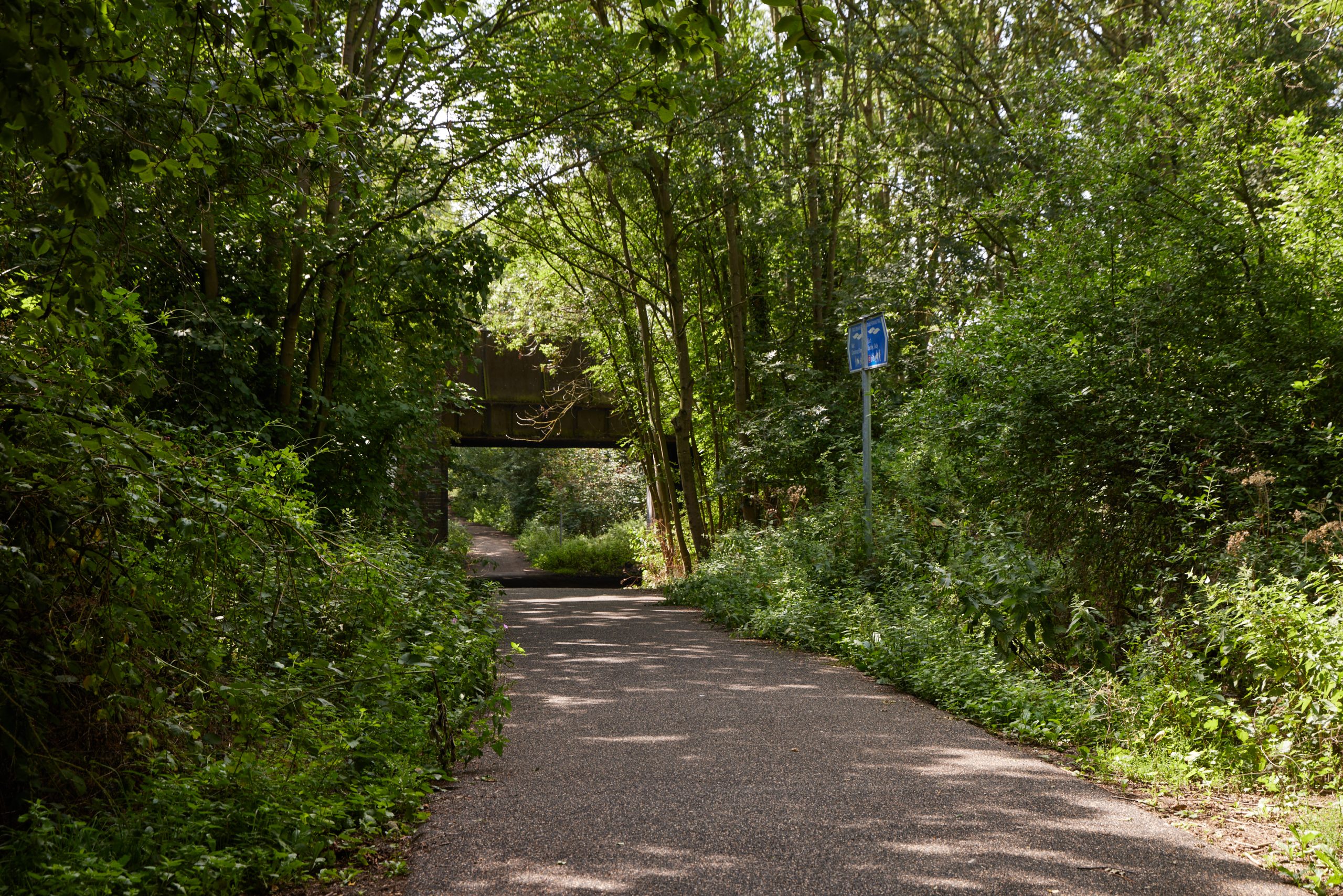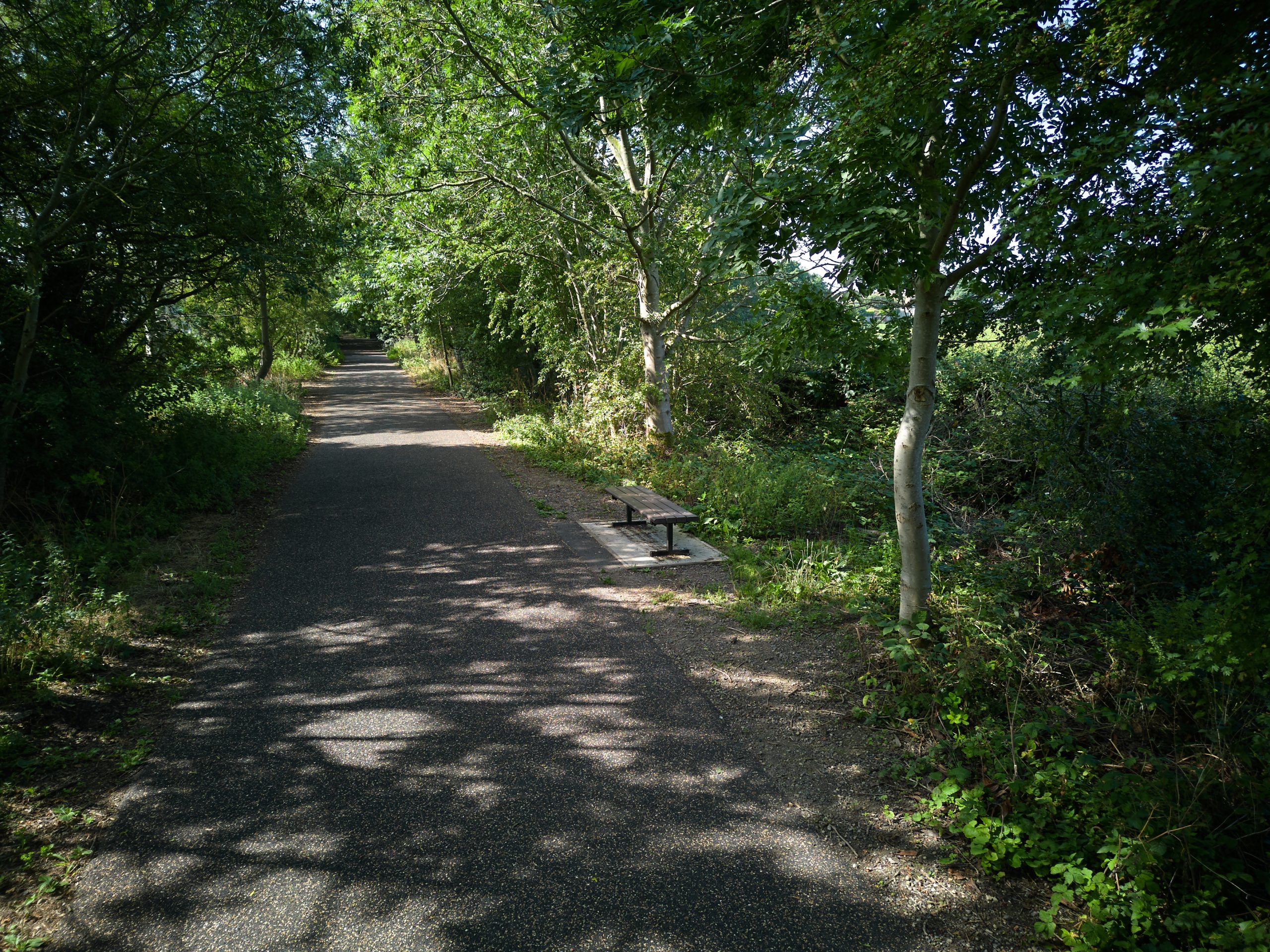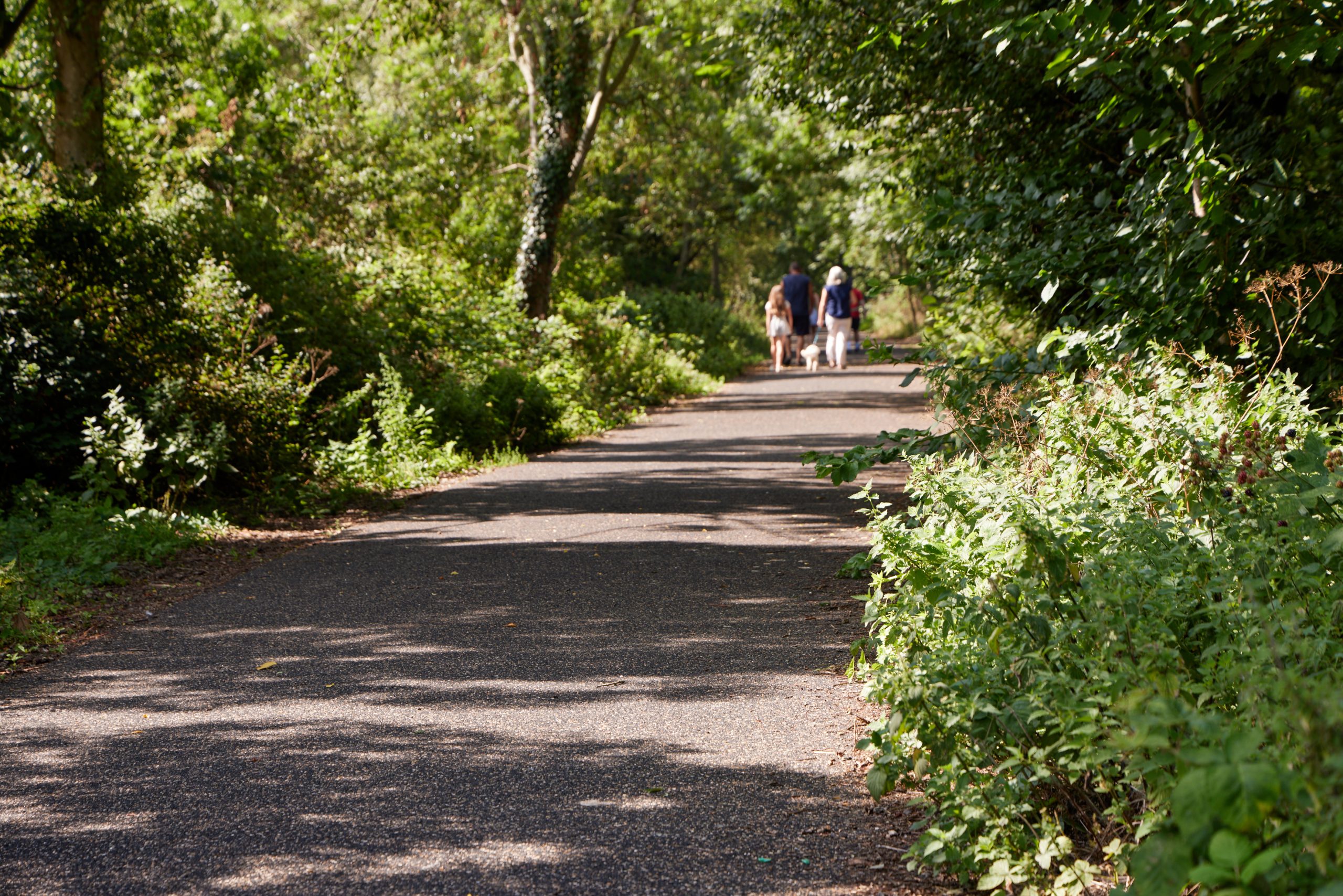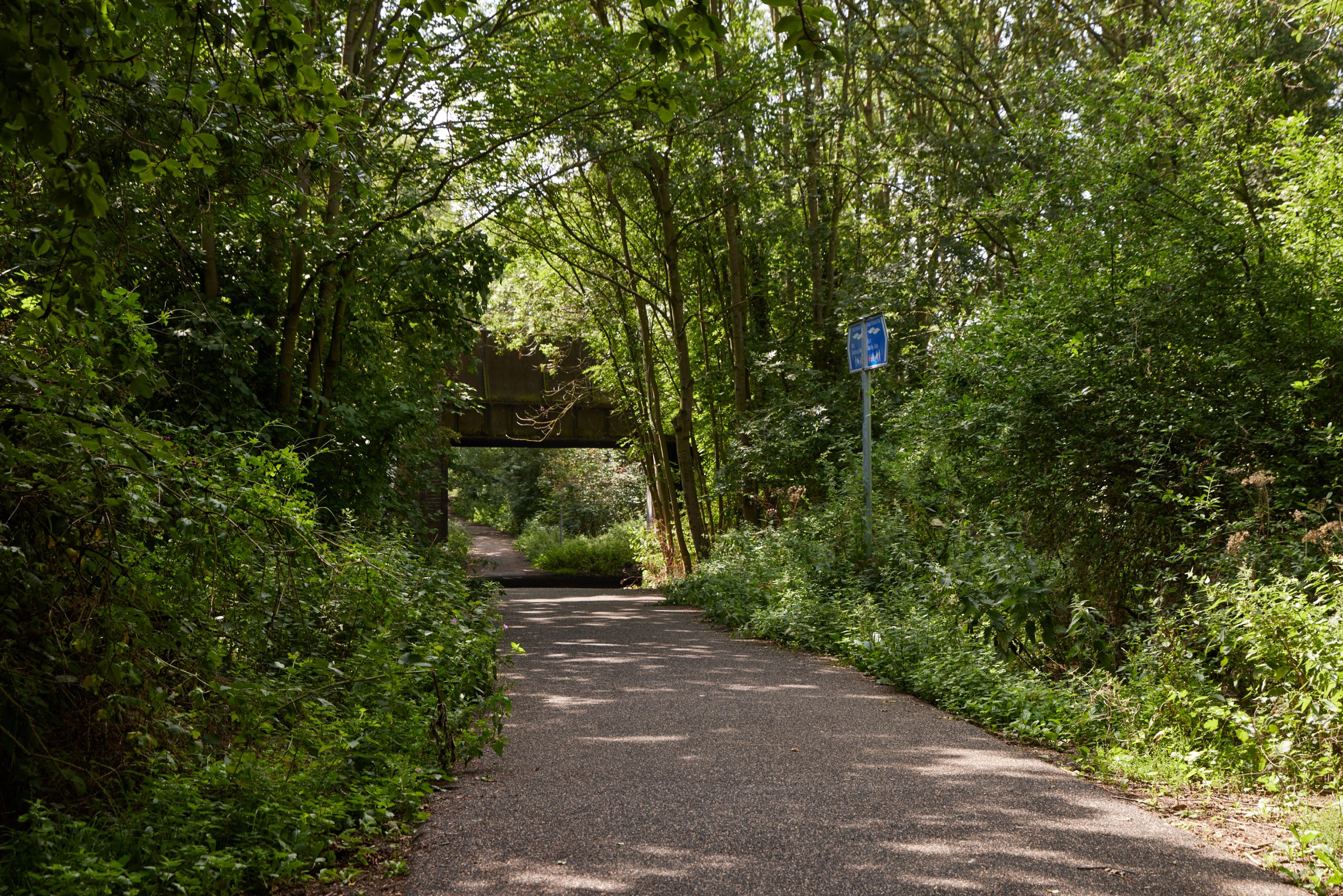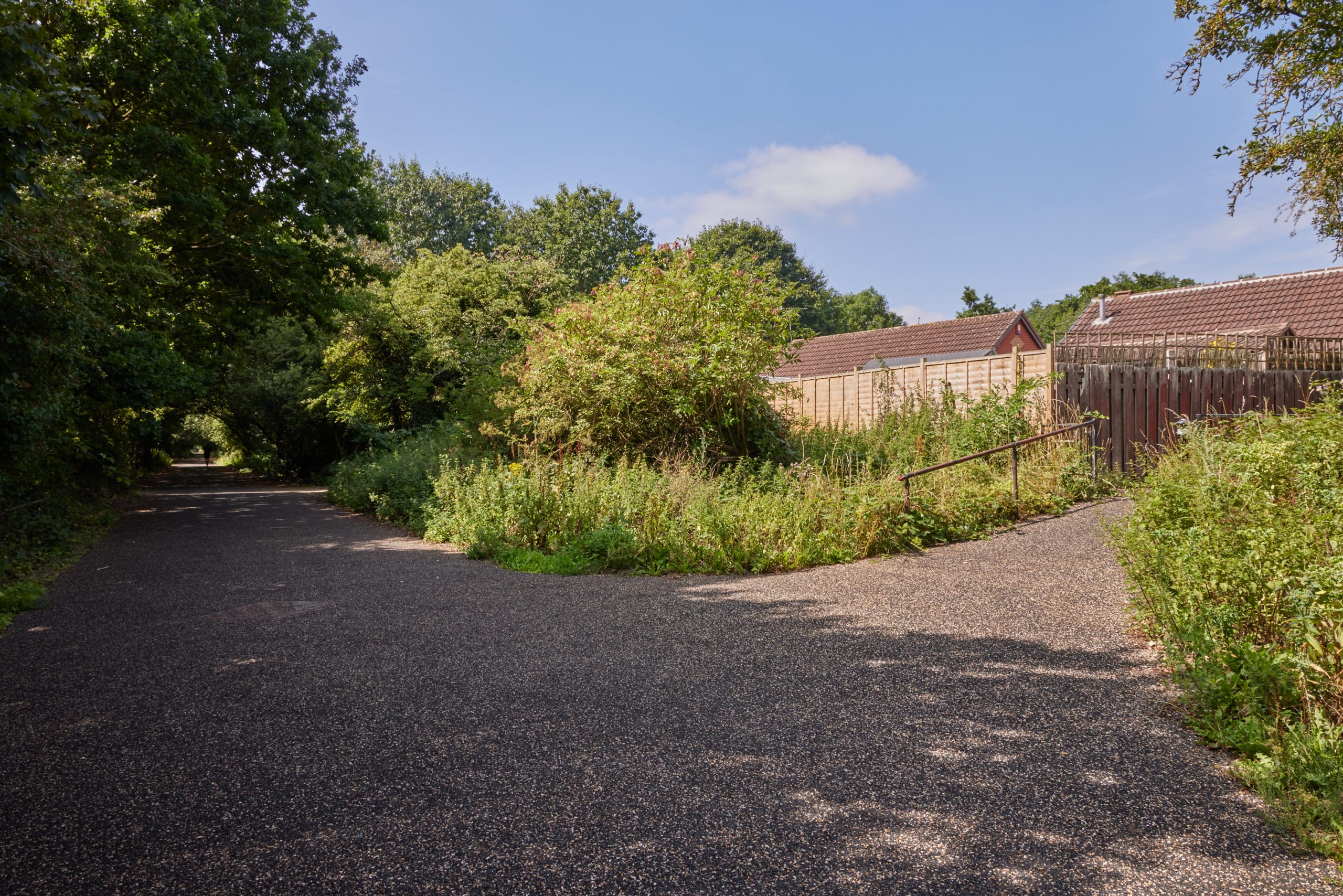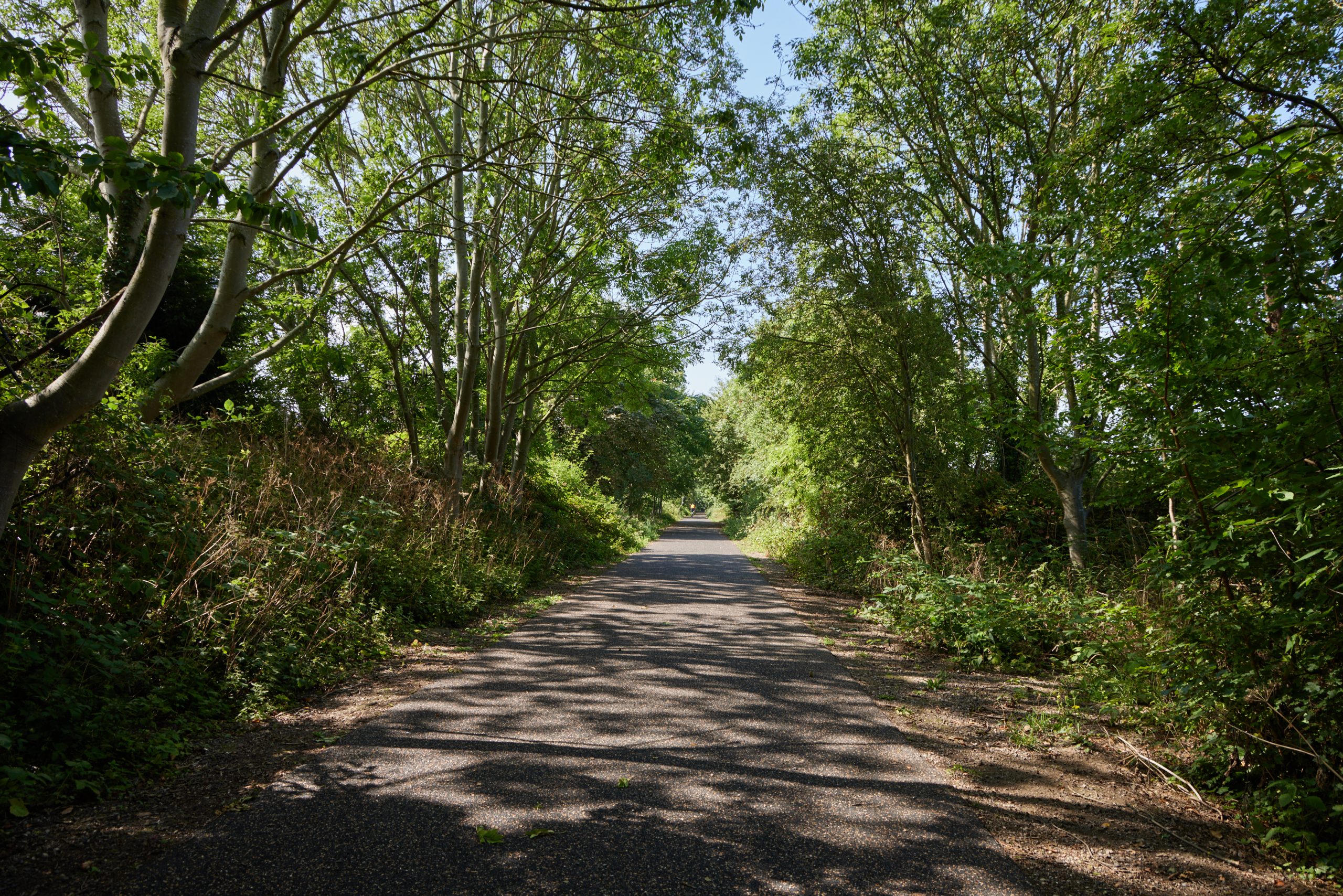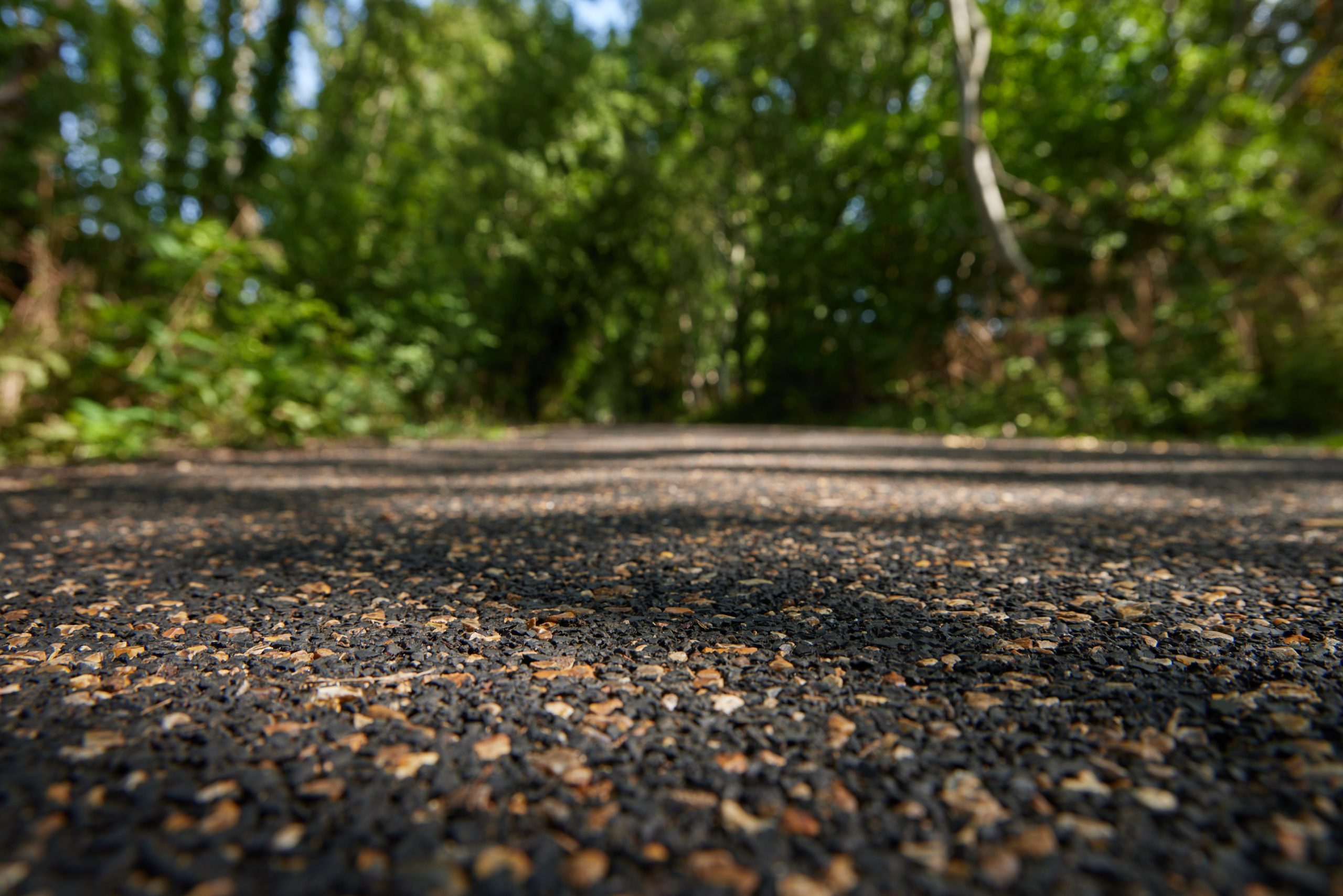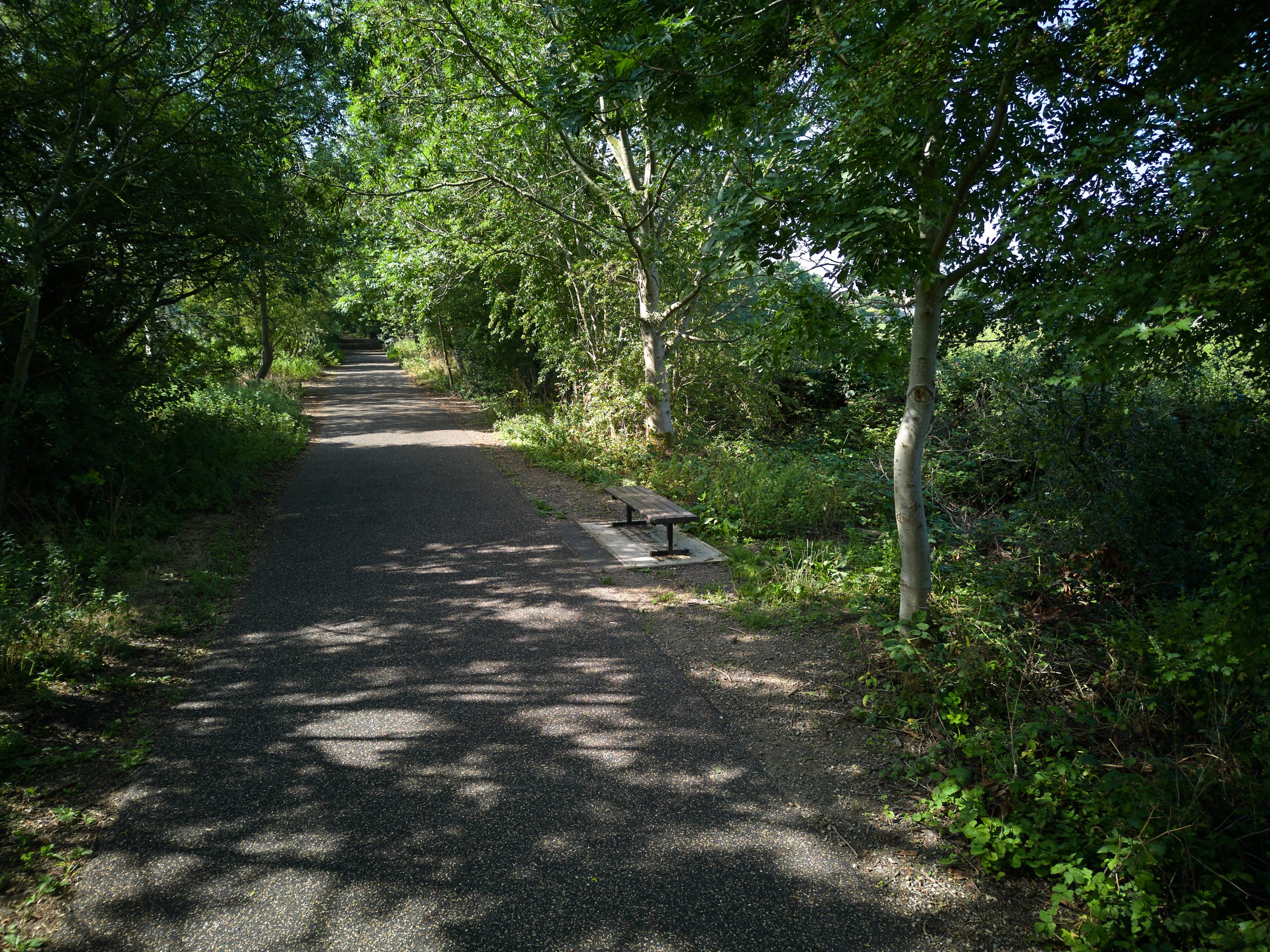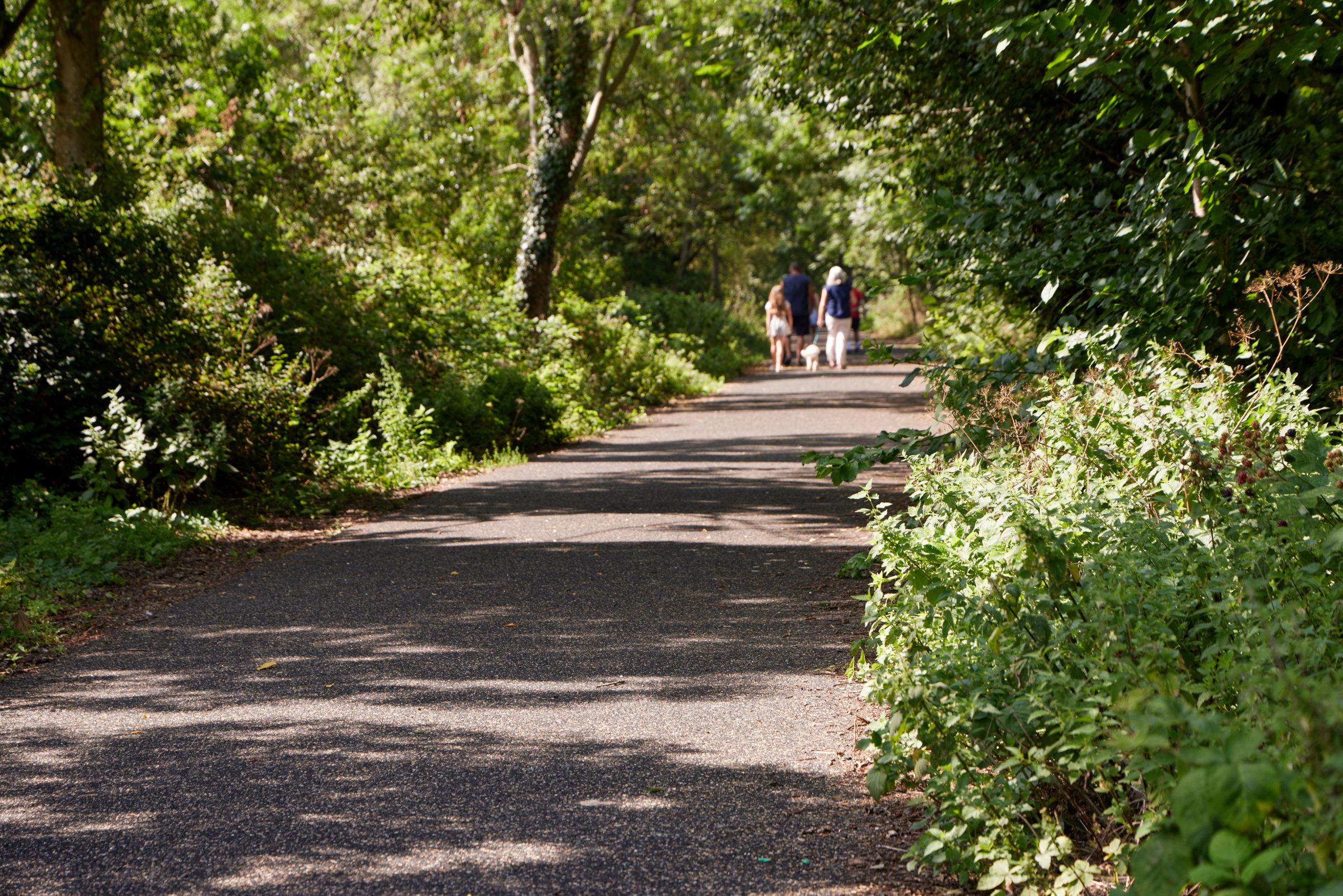Background
DCM Surfaces was appointed to upgrade a key section of the Trans Pennine Trail in Doncaster as part of a wider initiative to improve surface quality, accessibility, and environmental performance. The project focused on addressing long-standing issues such as waterlogging, and surface erosion.
Project Overview
To deliver on these objectives, DCM installed a 50mm deep porous surface comprising a blend of buff-coloured natural stone and recycled tyre rubber. This was laid over a recycled MOT Type 1 sub-base and reinforced with a premium stabilisation mesh. The permeable design enables effective water drainage, helping to eliminate pooling and surface deterioration, while the flexible material structure accommodates minor ground movement without cracking.
The upgrade formed part of a broader investment by Doncaster Council and Sustrans between 2020 and 2024 to enhance the usability and inclusivity of the Trans Pennine Trail. Improvements included widening the path to approximately 2.5 metres, removing access barriers, installing seating and signage, and encouraging local community participation through planting and clean-up initiatives.
Project Completion
The upgraded trail is now fully accessible for all users, with a resilient, high-performance surface that has eliminated flooding and mud-related problems. Thousands of recycled tyres were repurposed to reduce environmental impact, and DCM completed the project in just 24 days with minimal disruption. The low-maintenance surface ensures long-term durability and cost efficiency, supporting Doncaster’s green infrastructure goals and enhancing the overall user experience along this important section of the Trans Pennine Trail.
